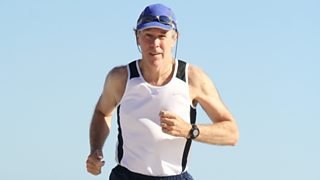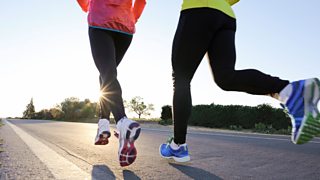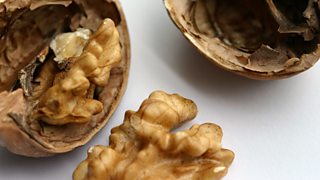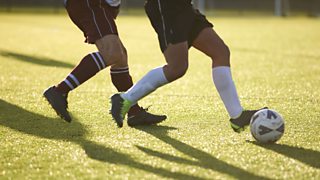What to eat when you're exercising
When it comes to keeping healthy, what you eat is just as vital a component as the exercise itself. As discovered, there are many different approaches to food and fitness. Here are six points to consider when deciding what you eat and how it will affect your workout.
1. High-carb snacks will give you a boost during that mid-exercise slump
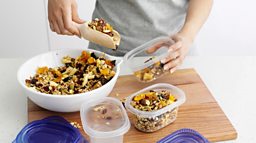
Carbohydrates are stored in the body as glycogen, and during hard endurance training, glycogen stores in the muscles are burnt off as energy. Once these stores are gone - and the body doesn’t keep much hanging around - you’re likely to start experiencing fatigue and aching as your body resorts to degrading the muscle tissue itself to release energy. Ingesting some complex carbs before or during an extended period of running, cycling or swimming is a great way to keep your blood sugar up and avoid that big slump when you’re 10 miles out from your house. These can easily come from whole grain foods like flapjacks (with research even showing that honey is a great source of carbs and other nutrients), or a simple peanut butter sandwich.
2. Protein is best suited for strength training and muscle gain
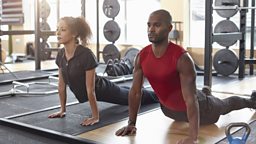
If the body does reach the point of breaking down muscle tissue for energy, as is often the case during intense exercise such as weightlifting, this must be accounted for in the diet. To combat this loss of muscle protein, strength athletes commonly supplement their diet with additional protein. It’s recommended to consume protein immediately following any intense exercise, as this is the period the muscles are most susceptible to absorbing it, and can then use it to restore muscle glycogen and promote muscle protein growth. This ensures that despite the intense exercise, muscle mass is maintained, or even increased.
While some champion the use of protein powders and other supplements, protein can more easily be found in whole milk, tuna, eggs and chicken (although probably not all at once) all of which come with other nutritional benefits which supplements are missing.
3. Fatty foods provide great fuel for low intensity workouts
Low intensity exercise, such as a gentle jog or short yoga session, is better suited to burning fat for energy. This is because in general, fat takes longer for our bodies to convert into energy, so a lower demand for energy encourages the use of fat as fuel. Consuming carbohydrates, then, is not as important, as the body can only store so much glycogen and isn’t as likely to burn any during the low-intensity exercise. Instead you should aim for a protein- or fat-based snack before exercising; foods such as avocado, eggs and coconut oil, that contain a good quotient of healthy fat alongside other nutrients.
4. While water is always needed, extra electrolytes may not be
We’re all aware (hopefully) of how important staying hydrated is when being physically active – anyone who’s gone without a water bottle during a fast-paced game of football can tell you of the fatigue, dizziness and cramping that dehydration during exercise will lead to. Dehydration occurs due to moisture loss through sweat and heavy breathing, and this comes with loss of electrolytes such as sodium and potassium, which usually maintain a healthy internal environment and efficient muscle function.

Electrolyte-heavy sports drinks are often pushed as a remedy to this, but while water is always important, sports drinks may not always be necessary (yes, even when taking part in sports). Electrolyte loss is only of real concern after more than an hour or so of continued exercise, and even then you might find it easier to have a crack at making your own electrolyte-based drink, or getting those electrolytes from a banana.
5. Should we be going high-carb, or high-fat?
In the world of nutritional science, there is currently intense debate as to which diet best supports a lifestyle of continued physical activity; low fat, high carb or low carb, high fat? The traditional view is that a high carb diet is best for preparing for periods of intense exercise, for example marathon training. This is a process known as carb-loading, and has been thought to prepare the body for extended exercise by increasing the stores of glycogen in the muscles, to release as energy when needed. Fat has traditionally been thought of as, well, fattening.
However, this has recently been thrown into contention. Many have found that coming off a high carb diet and moving towards a high fat diet has improved their fitness and performance, with some even reporting low carb as helping alleviate their diabetes. This view of nutrition is backed up evolutionarily too, as for most of our evolutionary history we haven't had access to carb-heavy farmed crops, so it would make sense for our bodies to be better adapted to using the fats we get from meat and fish.
The jury is still out on this one, and the arguments from both sides are detailed and multi-faceted. The debate is covered in detail on .
6. Everybody responds differently
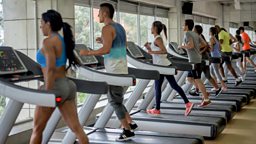
For all this, the world of nutritional science is a complicated one, and our bodies are all different. Overarching advice is often difficult to give, as people have different resting metabolisms, rates of nutrient absorption and gut biome composition, among many other things. A 2012 study closely followed the nutrient levels of 800 participants who were strictly kept on the same diet for a cumulative total of almost 50,000 meals, with the most interesting finding being that post-meal levels of blood glucose varied wildly from person to person. From this has emerged the still-young field of personalised nutrition, which aims at studying an individual’s lifestyle, physiology and genetics to determine how best they can eat healthily.
This is not to say that you should abandon all thought of a healthy diet, complemented with regular exercise, and head straight to the nearest chippy. But it is to say that everyone's response to different foodstuffs is different, so it might be worth taking the time to best find a diet and regime that works for your exercise and your body.
For more on how your diet can shape your athletic progress, listen to
More Food and Fitness from Radio 4
-
![]()
Dan Saladino meets the runners convinced low or no carbs is the way to peak performance.
-
![]()
Every weekend over 1.5 million people run 5,000m on Saturday mornings for parkrun.
-
![]()
Great tips for tasty warming salads for the colder months.
-
![]()
Take a look at the language, and in particular, the clich茅s of football. Back of the net!
